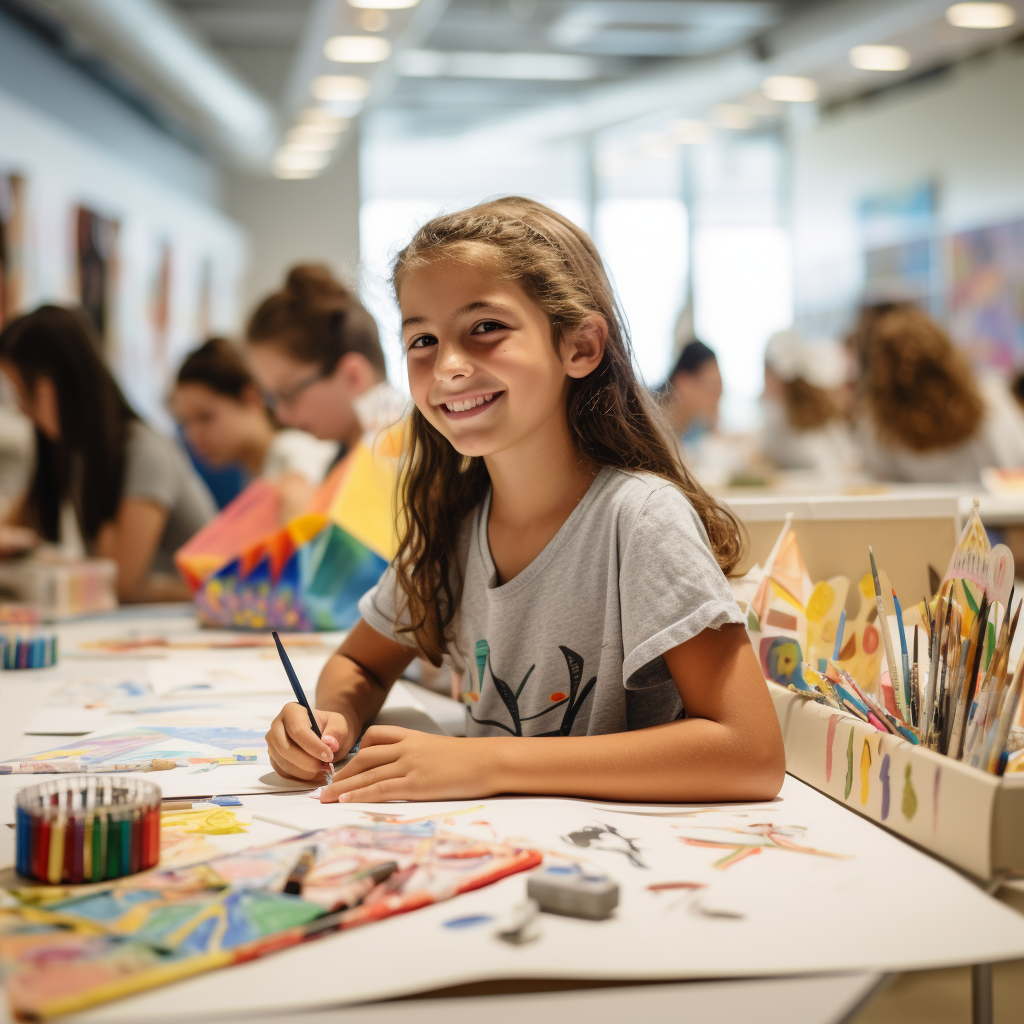How to Challenge a Gifted Child: Proven Strategies
Giftedness is a term that encompasses a wide range of unique cognitive abilities and talents. Recognizing and understanding these abilities is crucial for providing the appropriate challenges and support. Gifted children often exhibit advanced logical reasoning, abstract thinking, and a deep curiosity about the world around them. To nurture these traits, it is essential to offer learning opportunities that are not only advanced in content but also stimulate critical thinking and creativity.
To truly challenge a gifted child, one must first understand that their intellectual needs may significantly differ from their peers. It involves recognizing the signs of giftedness early on and considering the implications for their educational journey. This includes providing a rich, stimulating environment that encourages exploration and supports their emotional and social development. At Vanguard Gifted Academy, we specialize in identifying and nurturing the unique aspects of giftedness in each child.
Gifted children thrive in environments where they can move at their own pace and delve deeper into subjects that interest them. They benefit immensely from personalized learning plans tailored to their readiness levels and areas of interest, including STREAM (STEM + Research and Arts) programs, which incorporate a broad spectrum of disciplines and learning styles.
For more information or to schedule a tour, email us at gifted@vanguardgiftedacademy.org.
Tailoring Learning to Gifted Students' Needs
Gifted students possess a remarkable capacity for learning, often requiring more than the standard curriculum to remain engaged and challenged. Tailoring learning to meet their needs involves differentiating instruction and providing opportunities for advancement that align with their unique abilities. A one-size-fits-all approach does not suffice; instead, educators must assess each child's readiness and interest to provide appropriate learning materials and experiences.
Customized educational strategies might include compacting curriculum to avoid repetition of material already mastered, offering tiered assignments that cater to varying levels of ability, and implementing independent study projects that allow students to explore subjects of personal interest in greater depth. Additionally, acceleration options such as grade-skipping or early college courses might be appropriate for some gifted learners.
Enrichment programs also play a significant role in challenging gifted students. These programs can introduce them to complex concepts and problem-solving exercises that are not typically part of the standard curriculum. By engaging in these intellectually stimulating activities, gifted students can develop a more profound understanding and appreciation for the subjects they are passionate about, which can further drive their love for learning and discovery.
Incorporating Advanced Problem-Solving Opportunities

At the heart of effectively challenging a gifted child lies the introduction of advanced problem-solving opportunities. Such opportunities should be complex, open-ended, and foster critical thinking, pushing students to apply their knowledge creatively and innovatively. This involves presenting problems that may not have a single correct answer, or that can be solved in multiple ways, encouraging students to think divergently and explore a range of potential solutions.
Problem-based learning scenarios, where students are faced with real-world problems and must devise and test their solutions, are an excellent way to develop these skills. Similarly, engaging in competitions such as math olympiads, coding hackathons, or science fairs can stimulate intellectual growth and resilience by placing students in situations where they must strategize and persevere through challenges.
Moreover, incorporating technology and digital tools can amplify the problem-solving experience. Tools such as computer simulations, coding platforms, and interactive learning games offer dynamic environments where gifted children can experiment and learn from trial and error without the fear of failure. The key is to provide a safe space where taking risks is encouraged, and the process of finding a solution is valued as much as the solution itself.
Fostering Creativity and Innovation in Gifted Learners

Creativity and innovation are essential elements in nurturing the potential of gifted learners. By encouraging original thinking and inventive approaches, educators can help gifted students not only to excel academically but also to develop the skills necessary for future leadership and problem-solving in unknown territories.
One effective strategy for fostering these qualities is through project-based learning. This approach allows students to delve deeply into subjects of interest, connect with experts in the field, and develop their projects from conception to completion. It is vital to provide them with autonomy, allowing them to make choices about their learning paths, which enhances their intrinsic motivation and engagement.
Art integration also plays a pivotal role in stimulating creativity. By blending subjects like mathematics and science with the arts, students can express concepts in a variety of mediums, such as through music, drama, or visual arts. This interdisciplinary approach not only enriches their understanding of academic subjects but also encourages them to think and express themselves in innovative ways.
Moreover, providing opportunities for reflection is crucial. Gifted learners need time to ponder over their experiences, draw connections between disparate ideas, and incubate their thoughts. This reflective practice can be facilitated through journals, discussions, or digital portfolios where they can track and share their creative journeys.
Promoting Social-Emotional Growth Among Gifted Children

While academic prowess is often the focus for gifted children, their social-emotional growth is equally important for a well-rounded development. Gifted children can sometimes feel isolated due to their unique interests or advanced intellectual abilities, which makes it essential to implement strategies that promote social skills and emotional intelligence.
To address this, creating a supportive community environment is key. This can involve grouping gifted children together for certain activities, allowing them to connect with like-minded peers. Such interactions foster a sense of belonging and understanding among them, which is crucial for their social development.
Another important aspect is teaching emotional regulation and coping strategies. Gifted children may experience intense emotions and need guidance on how to manage these feelings effectively. Through activities designed to build emotional awareness, such as role-playing scenarios or mindfulness exercises, children can learn to navigate their emotional landscape with greater ease.
Developing empathy is also essential. Gifted children should be encouraged to engage with diverse perspectives and cultures to broaden their understanding of the world and the people in it. This can be done through collaborative projects, community service, and open discussions on various social issues, allowing them to cultivate a compassionate and empathetic worldview.
Lastly, providing leadership opportunities can help gifted children to apply their social-emotional skills in real-world situations. Taking on roles such as peer mentors, project leaders, or student council members can empower them to take initiative, work collaboratively, and make a positive impact on their community.
Evaluating Progress and Adjusting Challenges Accordingly

Regular evaluation of a gifted child's progress is crucial in ensuring that the challenges they face are appropriate and that their growth is on track. This involves a dynamic approach to assessment, which looks beyond traditional grades and test scores to a more holistic view of the child's learning journey.
Formative assessments, such as project-based learning evaluations and reflective journals, offer insights into both the cognitive and emotional development of the child. These tools can help educators and parents understand not only what the child knows but also how they think and feel about their learning experiences.
Adjusting challenges is an ongoing process that requires careful observation and responsiveness to each child's needs. As gifted children master certain areas, it's important to introduce new and more complex problems to solve or concepts to explore, ensuring continuous intellectual stimulation. This might include advanced level puzzles, research projects that delve into uncharted territory, or collaborative tasks that push them to develop new skills.
For families and educators seeking to optimize the learning environment for their gifted children, Vanguard Gifted Academy is at the forefront of personalized education. We encourage you to contact us for more information or to schedule a tour to discover how we can tailor our approaches to meet the unique needs of your child. Please feel free to gifted@vanguardgiftedacademy.org with any inquiries.
